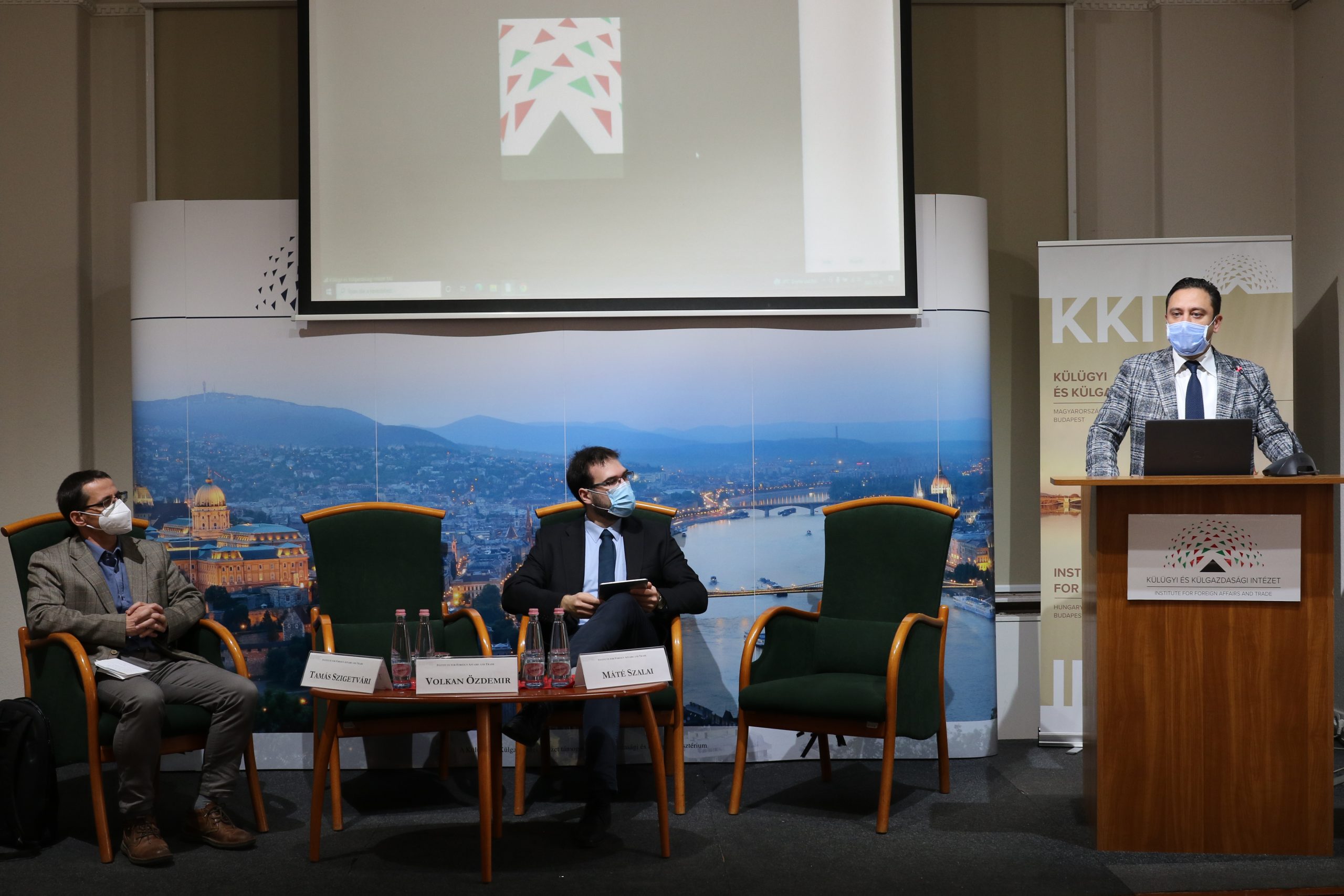On the 9th of December, the first joint conference of the Institute for Foreign Affairs and Trade (IFAT) and the ATA Platform took place in Budapest. The event included two panels focusing on bilateral economic relations between Turkey and Hungary, as well as on the regional and global geopolitical context of the relationship.
In the first open session entitled ‘Economic Relations and Opportunities between Hungary and Turkey’, two speakers shared their views in a discussion moderated by Máté Szalai. Tamás Szigetvári, an Associate Professor of Pázmány Péter Catholic University, talked about the current state of relations between the two countries. According to statistics, in the last two decades, the volume of trade between Hungary and Turkey increased by at least six times. While this is an impressive number in itself, there is still room for growth. Professor Szigetvári highlighted the flagship role of the pharmaceutical and energy sectors.
Later Şahin Yaman, a Member of the Board of the ATA Platform, Former Commercial Counsellor of the Republic of Turkey at the World Trade Organization (WTO) elaborated on the tectonic shifts in the global economic order before and after the COVID crisis which will surely affect Turkish-Hungarian relations. In this new era, the automotive sector and creative industries could be the basis for deepening the cooperation. Joint development in these sectors could especially be useful to promote inter-industrial cooperation and digitalization.
In the second panel, which was closed to the public, experts engaged in a discussion moderated by Péter Wagner on the regional geopolitical and geo-economic challenges in the Balkans and in Central Europe. Zoltán Egeresi, an external fellow of IFAT, elaborated on the major historical tendencies taking place in the region, putting an emphasis on the opportunities and obstacles connected to European integration. His words were followed by those of Volkan Özdemir, who shed light on the Turkish perception of several issues, including the changing role of external actors in the region, as well as of various transnational issues like the migration and refugee crisis.
At the end of the event, Director Özdemir delivered concluding remarks, highlighting the main points discussed during the day. He also announced the second joint conference to be organised by the ATA Platform and IFAT taking place in early 2022 in Ankara.

